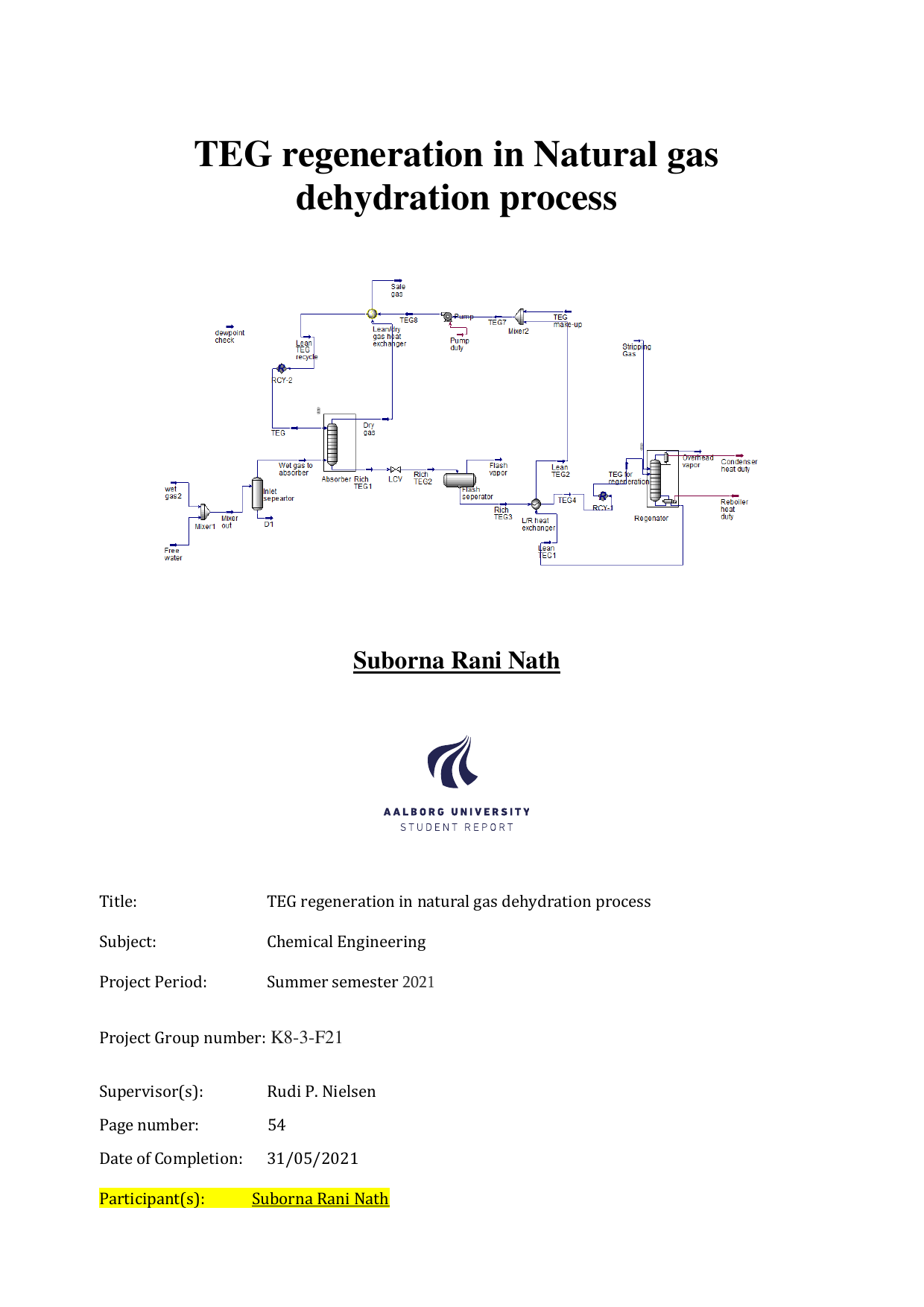
TEG regenration in Natural gas Dehydration process: TEG regenration in natural gas dehydration process
Author
Term
2. term
Education
Publication year
2021
Submitted on
2021-05-31
Pages
53
Abstract
The exploration and production of natural gas are usually contains large amount of water vapor during production operation. In order to protect the gas system from hydrate formation and to meet sale gas specifications it is necessary to remove water vapor from the natural gas stream; a process called dehydration. Glycol dehydration is the most frequent and cost-effective method of removing water from natural gas streams, which employs triethylene glycol (TEG) as the dehydrating agent, were simulated using Aspen HYSYS software. The primary goal of this study is to performing a sensitivity analysis over the obtained results from the simulation and to study the possibility of optimizing the process to predict the optimum parameters in natural gas dehydration system. Three different TEG flow rates, stripping gas flow rate and reboiler temperature were used for the simulation. Result shows that, the simulation process succeeds in reducing the water content to 0.623lb/MMSCF from an initial value of 13.80lb/MMSCF and found out the most effective parameter to remove the water vapor and estimating the TEG purity for 3750kg/h of TEG flow rate at reboiler temperature 204℃ with 1900kg/h stripping gas flow rate. Finally it appears that, using stripping gas is a more effective technique to improve the TEG purity and the overall performance of the dehydration plant.
Documents
